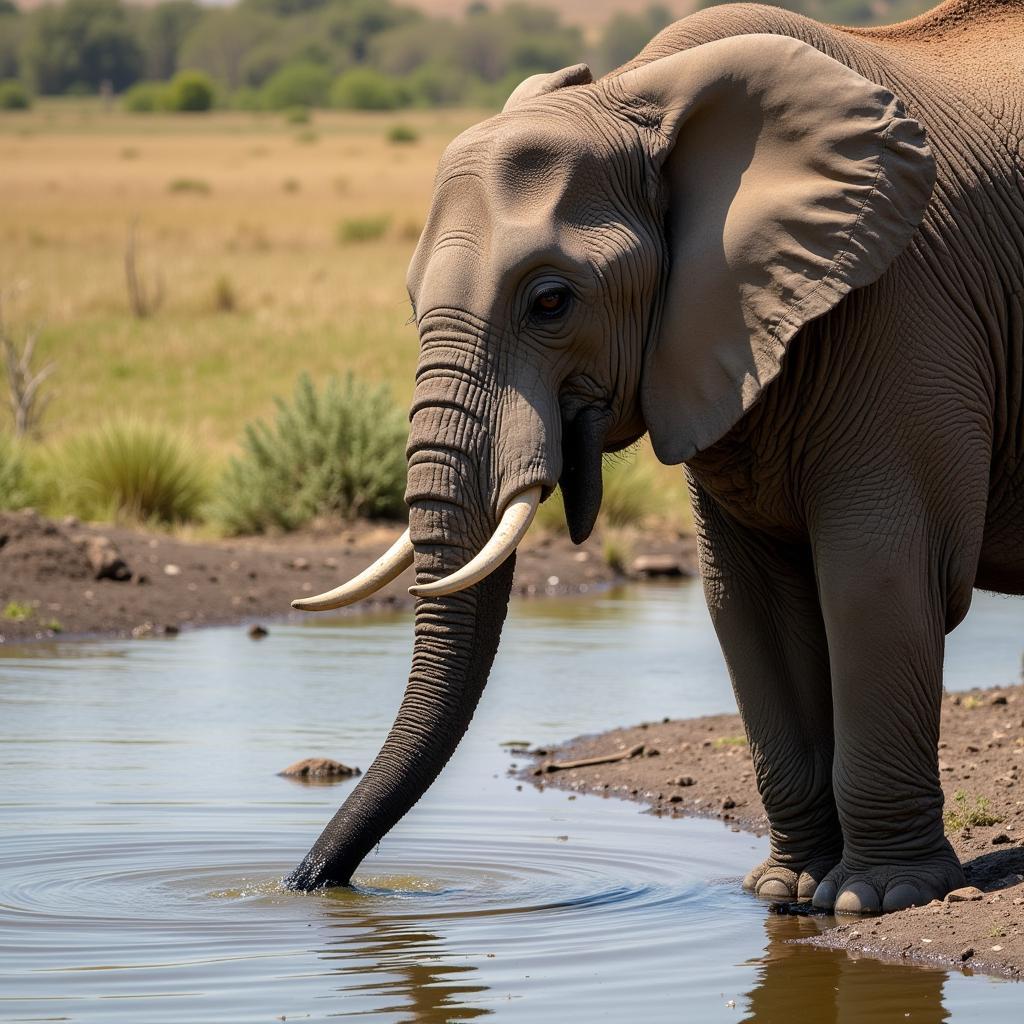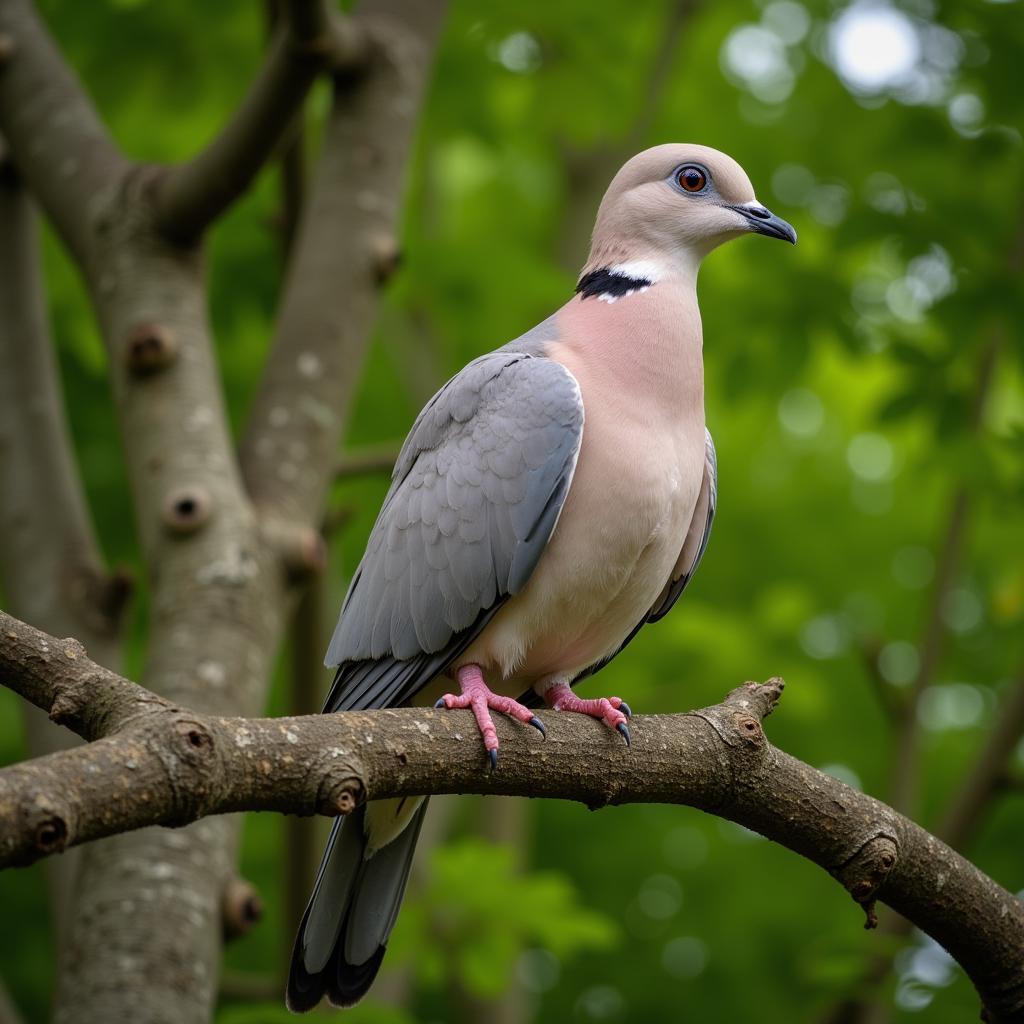The African Elephant: A Giant for Kids to Discover
The African elephant, an iconic symbol of Africa’s wildlife, captivates the imagination of children and adults alike. This gentle giant roams the savannas and forests, captivating us with its sheer size and fascinating behaviors. Let’s dive into the world of the African elephant, uncovering amazing facts and stories perfect for kids.
How Big is an African Elephant?
Imagine standing next to a school bus! That’s how tall an African elephant can be! These majestic creatures are the largest land mammals on Earth. An adult African elephant can grow up to 13 feet tall and weigh as much as 6,000 kilograms. That’s heavier than three cars combined!
What Makes African Elephants Special?
African elephants are easily recognized by their large ears, which are shaped like the continent of Africa itself! Their ears are not just for show; they help the elephants to hear sounds from far away and to keep cool in the hot African sun.
But the most remarkable feature of an African elephant is its trunk! Did you know an elephant’s trunk is actually its nose and upper lip combined? It’s incredibly strong and flexible, acting like a hand, a straw, a trumpet, and even a showerhead!
 African Elephant Using Trunk to Drink Water
African Elephant Using Trunk to Drink Water
What Do African Elephants Eat?
African elephants are herbivores, which means they are plant-eaters. They spend most of their day eating grasses, leaves, fruits, and bark. In fact, an adult elephant can eat up to 300 kilograms of food in a single day! That’s like eating a mountain of vegetables!
African Elephant Families: All About the Herd
African elephants are very social animals and live in herds led by a wise, older female called a matriarch. The matriarch guides the herd to food and water and protects the younger elephants. Baby elephants, called calves, stay very close to their mothers for the first few years of their lives.
african elephant facts for kids
Why Are African Elephants Endangered?
Sadly, African elephants are facing many threats. Habitat loss due to human activities like deforestation and agriculture is shrinking their living spaces. Poaching, the illegal hunting of elephants for their ivory tusks, is another major threat to their survival.
“Protecting African elephants is crucial for maintaining the balance of our ecosystems,” says Dr. Amina Mohamud, a wildlife conservationist based in Kenya. “Their role in seed dispersal and creating clearings in the forests benefits countless other plant and animal species.”
How Can We Help African Elephants?
Even though we might not all live in Africa, we can still help protect these amazing animals:
- Learn More and Spread Awareness: Sharing interesting facts and stories about African elephants with friends and family is a great way to raise awareness about their plight.
- Support Conservation Organizations: Many dedicated organizations are working tirelessly to protect elephants in the wild.
- Choose Sustainable Products: Avoiding products made from ivory helps reduce the demand for elephant tusks and discourages poaching.
Remember, every little action counts when it comes to protecting our planet’s incredible wildlife!
African Elephants: Gentle Giants We Must Protect
The African elephant, with its immense size, incredible trunk, and fascinating social behavior, is a true marvel of the natural world. By understanding these creatures and the threats they face, we can all play a part in ensuring their survival for generations to come.
Do you want to learn more about ways to help protect African elephants?
african kids bathing with elephant
FAQ: African Elephants
1. How long do African elephants live?
African elephants have a lifespan similar to humans, living for around 60-70 years in the wild.
2. How much water can an African elephant drink in a day?
A thirsty African elephant can drink up to 50 gallons of water in a single day!
3. Do African elephants sleep standing up?
While adult elephants can sleep standing up, they prefer to lie down for a more restful sleep.
4. How can I see an African elephant in the wild?
Visiting national parks and reserves in African countries where elephants are protected is the best way to observe these animals in their natural habitat. Always remember to follow responsible wildlife viewing guidelines.
5. What’s the difference between an African elephant and an Asian elephant?
While both are magnificent creatures, there are some key differences. African elephants are generally larger and have larger ears shaped like Africa. Asian elephants have smaller, rounder ears and a more rounded back.
african elephant facts for children
Let us know if you have any other questions! We are here to help you discover the wonders of the African elephant. Contact us at +255768904061, email us at kaka.mag@gmail.com, or visit our office in Mbarali DC Mawindi, Kangaga, Tanzania. Our customer service team is available 24/7 to assist you.



